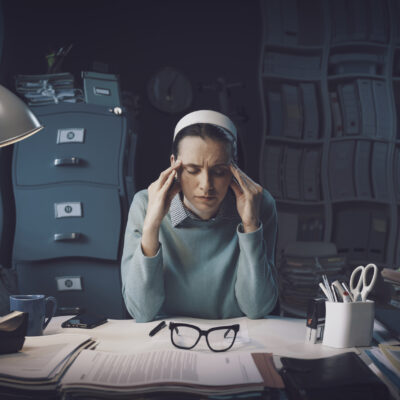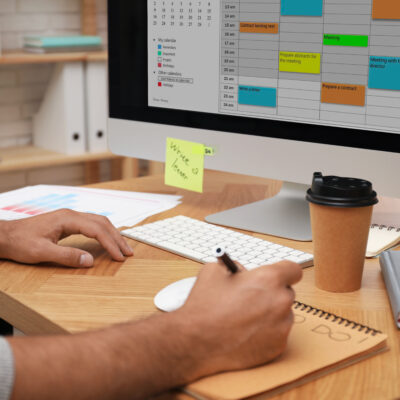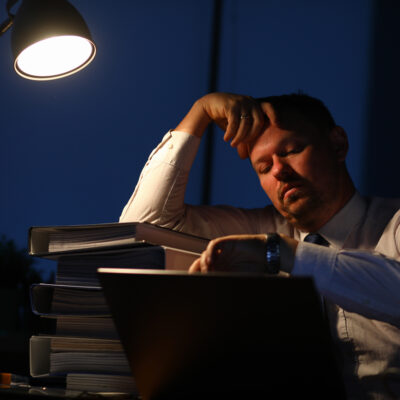Remote workers are far more productive than their in-office counterparts, even going so far as to work 17 additional days per year. However, in order to make the most out of this time, it’s important that you design an office that boosts your efficiency.
Here, we’re going to give you some tips to help you design and maintain a productive workspace. Read on to become a better worker and make the most out of each day.
1. Create an Energizing Environment
A positive and energized mindset is critical for a productive workday. Because of this, it’s important that you design your office to keep you alert and excited.
Having appropriate lighting throughout your space is a key way to stay in a positive mental space. Set up your office in a room or area with a window if at all possible. Sunlight keeps you awake and provides you with Vitamin D so that you can stave off exhaustion, lethargy, and even seasonal depression.
If you don’t have a space with a window, that’s also okay. You can purchase sun lamps that are specifically designed to emulate the sun’s rays. The synthetic sunlight from this lighting provides you with the vitamins and minerals needed to stay mentally and physically healthy.
In addition to great lighting, you’ll also want to spruce up your space with an invigorating color scheme. Yellow-painted walls will keep you cheerful and happy throughout your workday while orange will pave the way for social wellness. Red is one of the most energizing and empowering colors out there and is an effective choice for home offices.
Make sure that you vary the hues that you use throughout your workspace. Visual diversity keeps the mind stimulated so that you remain focused throughout your day.
2. Keep Everything Tidy
Studies show that clutter increases stress and anxiety in those who live with it. Studies show that those whose home environments are cluttered have higher levels of cortisol, a hormone that causes stress when released in the brain.
Clutter is bad for our brains in other ways, too. The human mind likes order, and seeing disorganized spaces can quickly drain our cognitive resources. This visual distraction can lead to the inability to focus on tasks and limits productivity.
As you can imagine, this is especially bad for those working from home. It’s important that you keep a clean and tidy space to stop yourself from suffering from mental overload. This will ensure that you can focus on daily work tasks with 0 distractions.
Take a few minutes after work each day to tidy up. If you take the time to do this each day, it shouldn’t take you more than 5 minutes to eliminate clutter. Make cleanliness a habit so that you can start fresh the next morning in a clean and organized environment.
3. Have Water and Snacks Nearby
Eating healthy is one of the most important habits that you need to develop if you want to achieve the greatest possible happiness. Nutritional diets give your brain the fuel that you need to perform well at work and stay on task.
Hydration is perhaps even more important. If you don’t drink enough water, you’ll have low energy levels and are likely to contend with mental fog. You also may get headaches and stomachaches when dehydrated, which puts an obvious damper on your workday.
However, it can be hard to remember to get up and replenish your body when you’re focused on work. That’s why you need to consider nutrition when designing a home office.
Create a designated area on your desk to put a water bottle and some healthy snacks. Make sure that the bottle is big enough to keep you hydrated throughout the day. Apple chips, trail mix, and protein bars are good choices for snacks that will keep you feeling healthy and energized.
4. Minimize Visual and Auditory Distractions
It’s easy to become distracted by working, even when you manage to eliminate clutter from your office space. That’s why you need to design an office that specifically works to combat distractions.
If you live in a city or an apartment building with a lot of noise, consider getting some Bluetooth speakers or noise-canceling headphones. You can play soft instrumental music to get the blood flowing to your brain. Studies show that music can help with information retention, cognitive abilities, and focus.
If you don’t like music when you work, a white noise machine may be a good idea. You can hear the sound of pattering rain even on the sunniest of days. Fan sounds can also drown out other noise and help you focus on the task at hand.
Visually speaking, make sure that you don’t have too many personal items on your desk. A small figurine or a photo of your pet is probably fine, but don’t line your desk with a ton of personal effects.
5. Stay Comfortable With Ergonomic Furniture
When designing and constructing an office, it’s important that you get the most ergonomic furniture possible. This means a chair with a lot of lumbar support and padding to prevent lower back pain. It also means a desk that places your computer at eye level, a balance board for standing desks, and padding for your wrists as you type on your keyboard.
It’s important to set a budget but also to understand that your home office furniture is an investment. Make sure that everything you buy promotes your physical wellness and keeps you comfortable.
This doesn’t just reduce everyday discomfort. It also can help prevent you from developing long-term back, neck, and wrist problems.
6. Keep Your Schedule Within Reach
Finally, make sure that you have a calendar or planner within reach at all times. Mounting one to the wall is the best way to ensure that you always can see and remember deadlines. You also can jot down meeting times and notes about calls that you were in.
While it’s good to have a digital planner, it’s also easy to forget about it. Having a physical copy of your schedule nearby serves as a reminder for all upcoming events, deadlines, and more. You’ll feel less stressed because you can manage your time better and therefore can be more productive.
Design an Office Built for Success
It can be challenging to design an office that maximizes your productivity, but it’s well worth the effort. Having a productive workspace can increase your mental health as well as your efficiency.
Now that you know some top office design tips for those who work from home, it’s time to learn more about boosting your career. Check out our blog for more information on maximizing your productivity in your WFH office.
3 Comments
Comments are closed.












[…] easy to keep your workspace clean if you spend a few minutes each day putting things away, throwing away wrappers and trash, and […]
[…] employees to create a workspace that isn’t distracting. Assign them to one task at a time. Build an office environment that encourages focus (i.e. […]
[…] topics we discuss. Additional topics include how to make the most of your workday, 6 ways to make your workspace more productive, and 5 morning habits of highly successful […]